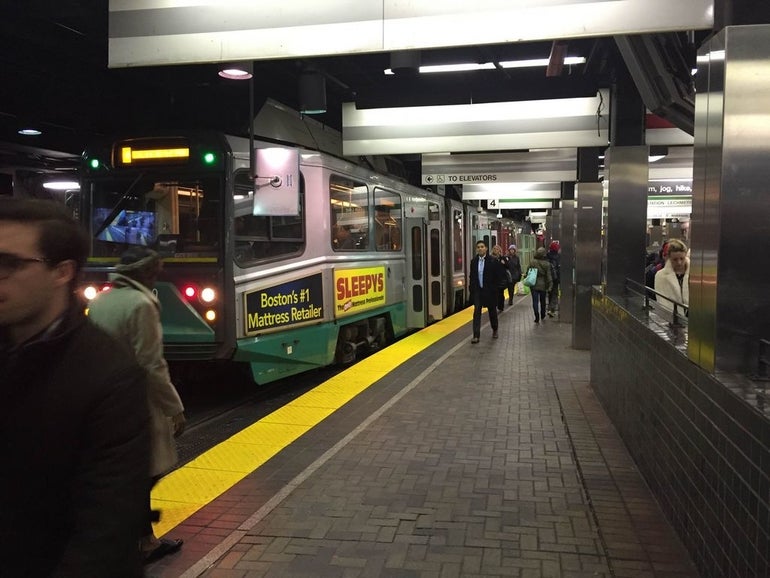A small crowd that gathered to weigh in on the potential elimination of the MBTA’s late-night weekend transit service Tuesday evening spoke nearly unanimously in favor of saving the costly new option.
Kenzie Bok, who said she is a 26-year-old lifelong resident of Boston’s Bay Village, said she reviewed her calendar over the past 10 weeks and tallied up nine times when she had used late-night service, estimating she spent about $10 or $15 during the extra hour of socializing she gained through the extended service.
Bok questioned whether the cut is targeting young transients who are “less likely to vote; less likely to kick up a fuss,” and questioned the subsidy for some of the less popular rides on the commuter rail, which averages a $5.75 subsidy – higher than any other fixed-route service.
“We know there are other off-peak hours of the T,” said Bok, who asked whether higher fares for late-night could prevent the service’s elimination.
With aims to close what had been projected as a $242 million budget gap in fiscal 2017, the MBTA’s Fiscal and Management Control Board initiated the process of putting on the chopping block the program that has added 100 minutes to the close of regular service on Saturday and Sunday nights.
MBTA Assistant General Manager Charles Planck said an alternative to elimination could be appealing to the private sector to provide some new form of late-night service. Planck said in addition to the roughly $13.38-per-ride subsidy for late night, longer use of the tracks cuts into the hours that could be spent performing maintenance. Planck said Halloween was the most popular time for the late-night service.
After 15 people voiced support for the service or concern about its elimination, Reggie Clark, a Brookline resident who uses a white cane to get around, uttered the night’s only public skepticism of the program that began in 2014 as a pilot.
“It costs money to run the service,” Clark told the News Service.
While no members of the Fiscal and Management Control Board were present for Tuesday evening’s hearing, MBTA Chief Administrator Brian Shortsleeve listened in and Planck said staff would summarize the comments for the board.
After a little less than an hour of public comment, a group of attendees huddled around Planck continuing a back-and-forth discussion on the issue.
Aubrey Ryan, a Suffolk University student who lives in East Boston, said she is in a band and uses the service to get around the city safely, noting that the “costs are so much more” to use a ride-hailing service and walking or bicycling home to her neighborhood is not an option.
Gabriel Distler, of Somerville, said eliminating the service would affect restaurant employees, the “most vulnerable,” and make the city less attractive to young professionals. Noting the fare increases the control board is also considering, Distler suggested alternative revenue-raisers such as a gas-tax hike or special liquor licenses for restaurants that stay open late.
“We should be getting more for our money; not less for our money,” Distler said. He said, “If service is being cut we shouldn’t have to pay more money for it.”
Planck said there were only a “few, small” sponsors of the late-night service and reviewed a prior, bus-based provision of late-night weekend service. The Night Owl service began in 2001 and was canceled in 2005 for budgetary reasons.
The roughly two-hour late-night service garnered about 13,000 riders per night in December, compared to a ridership of 72,700 during the 5 p.m. weekday hour and 14,562 during the 5 a.m. weekday hour, according to the T.
Tillyruth Teixeira, a Boston resident who is involved with the Massachusetts Senior Action Council, said the late-night service makes her spare room “very enticing” to her young adult grandchildren.
“This should be a world class city. We’re not,” said Teixeira.

